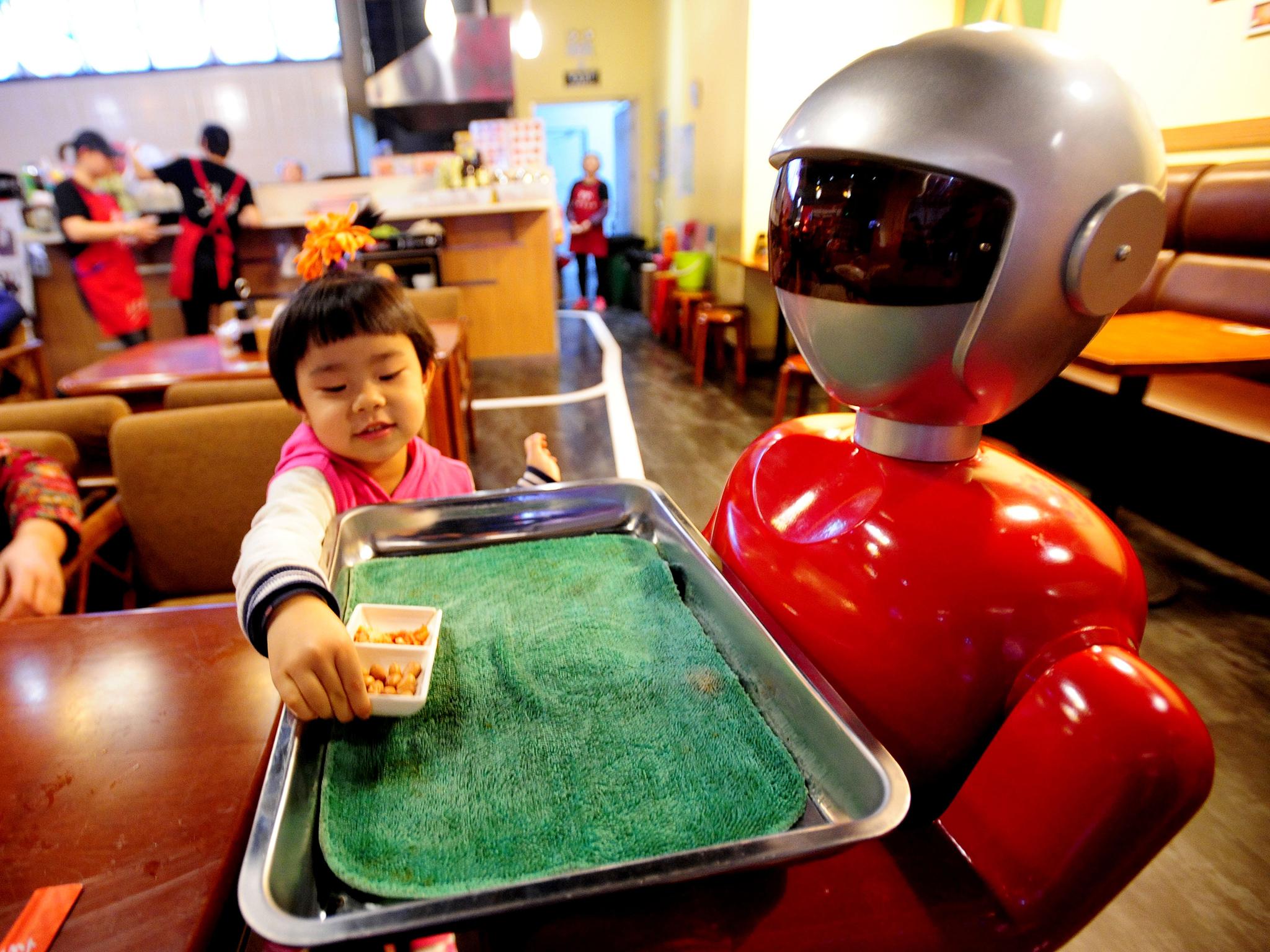Virtual reality lessons could make some teachers millionaires, experts predict
Technology is set to play a vital role in helping the 263 million children globally who are not in school

Your support helps us to tell the story
From reproductive rights to climate change to Big Tech, The Independent is on the ground when the story is developing. Whether it's investigating the financials of Elon Musk's pro-Trump PAC or producing our latest documentary, 'The A Word', which shines a light on the American women fighting for reproductive rights, we know how important it is to parse out the facts from the messaging.
At such a critical moment in US history, we need reporters on the ground. Your donation allows us to keep sending journalists to speak to both sides of the story.
The Independent is trusted by Americans across the entire political spectrum. And unlike many other quality news outlets, we choose not to lock Americans out of our reporting and analysis with paywalls. We believe quality journalism should be available to everyone, paid for by those who can afford it.
Your support makes all the difference.Robot classroom assistants and virtual reality learning could see “celebrity teachers” make millions, experts claim.
Technology is set to play a vital role in helping the 263 million children globally who are not in school, delegates at the annual Headmasters’ and Headmistresses’ Conference (HMC) heard.
Mark Steed, the director of Dubai private school Jess, said the format was already being used by some teachers to offer global internet-based seminars, earning millions of pounds in the process.
He pointed to a Korean teacher who offers online lessons on “cramming” learning and made $8m (£6m) in one year.
Mr Steed also predicted that robots could be used to teach maths and reading to primary school pupils.
He said there was already an example in Dubai where a robot accompanied sick children from the classroom to the school’s health centre.
“I think we will see more robots in the classroom and I think they will become routine, particularly in primary classrooms, as teaching assistants,” he said.
Mr Steed, who outlined his vision at the HMC conference in Belfast, said virtual reality (VR) headsets could enable a child in the developing world to sit in on a lesson delivered in a top independent school.
He said footage captured by a 360-degree camera placed in the second row of one of the classrooms at Jess provided a totally immersive experience when watched through a VR headset.
“When you put a headset on you feel as if you are in a classroom and it’s a very different experience from the passive idea of watching a screen,” he said.
“I can turn to the left and right and see the people who are in the class there.
“There’s no reason with time, with increasing bandwidth and processor speed and everything, that you could have the experience of a pupil sitting anywhere in the world feeling as if they were in the classroom of one of the top schools in the world.”
He suggested the for-profit school sector had the resources to invest in the technology required to deliver the concept.
The educationalist also expressed confidence that cost implications associated with supplying headsets would not be overly prohibitive in the developing world.
He said the spread of mobile phones in developing countries was an example of how technology was not a barrier.
Mr Steed said he did not think the developments would catch on in UK schools in the short-term, claiming the nation was too wedded to the traditional concept of a teacher standing in front of a class.
But he predicted such technology would increasingly be used to address education deficits elsewhere in the world.
“I think technology is going to become part of the solution,” he said.
“I don’t think we’ll see much of this necessarily in the UK in the short-term but on a global scale there will be opportunities for top teachers and the top institutions to share their lessons with people around the world.”
The HMC is a body which represents the heads of independent schools around the world.
PA
Join our commenting forum
Join thought-provoking conversations, follow other Independent readers and see their replies
Comments